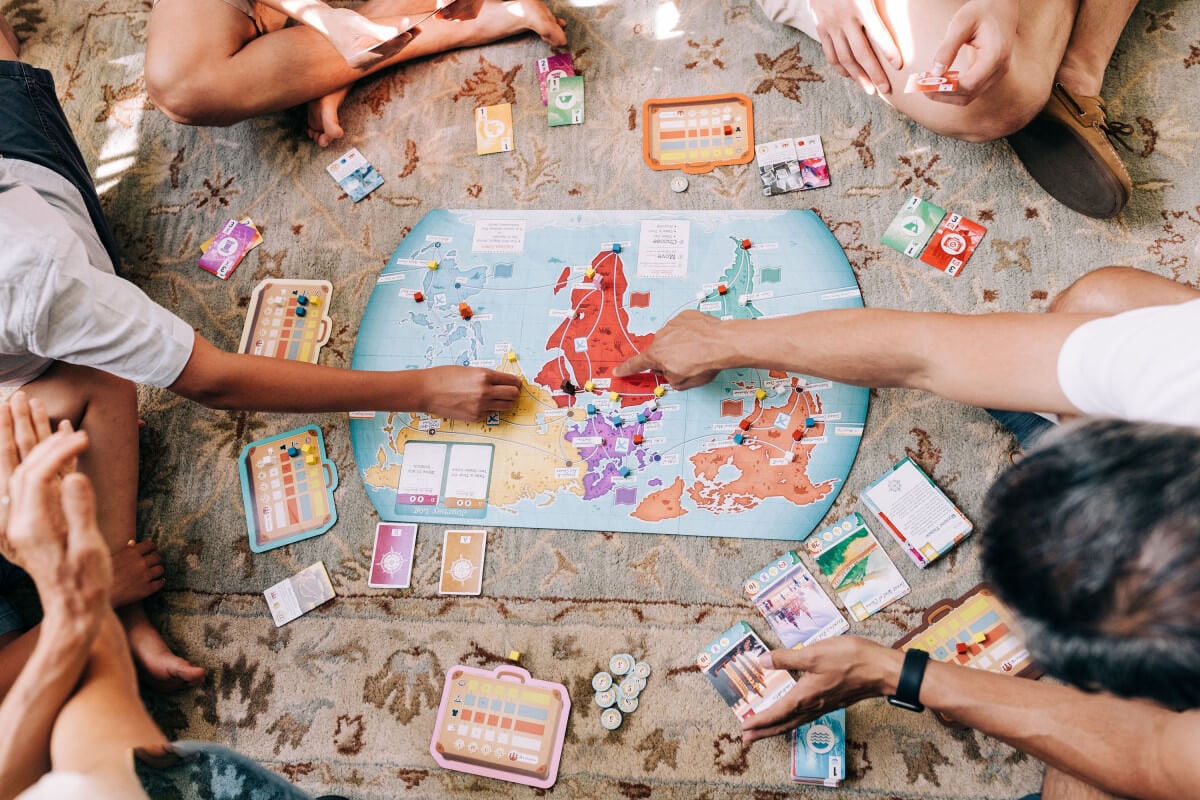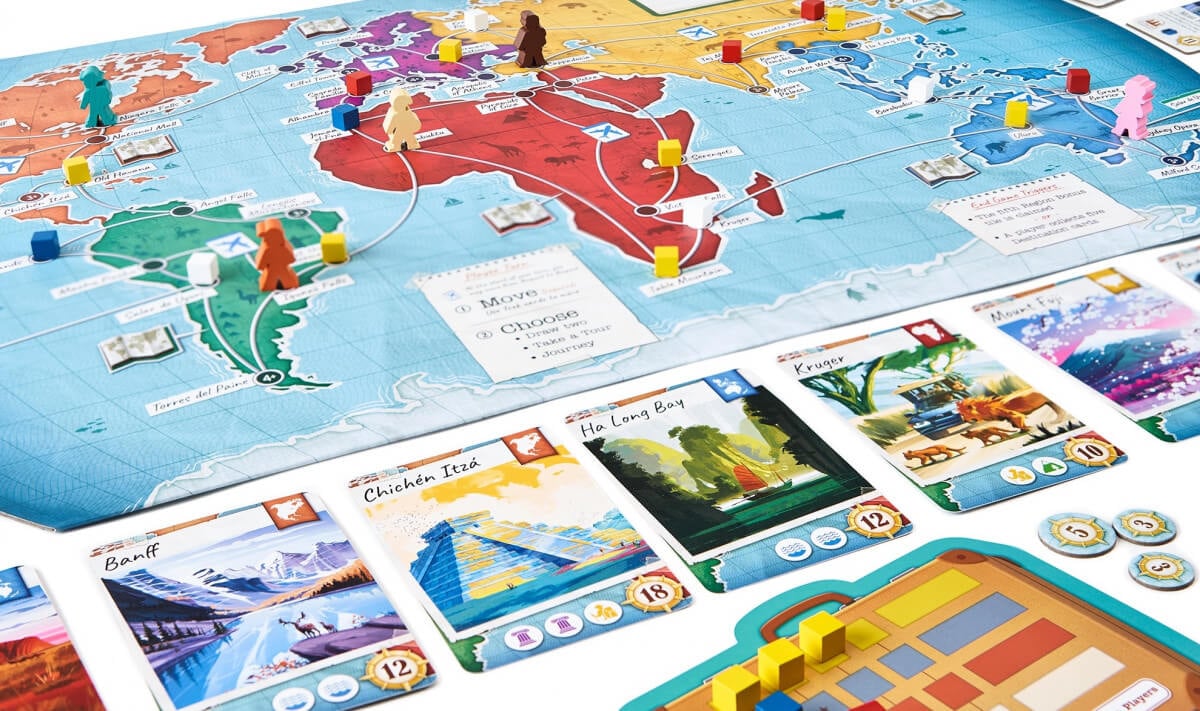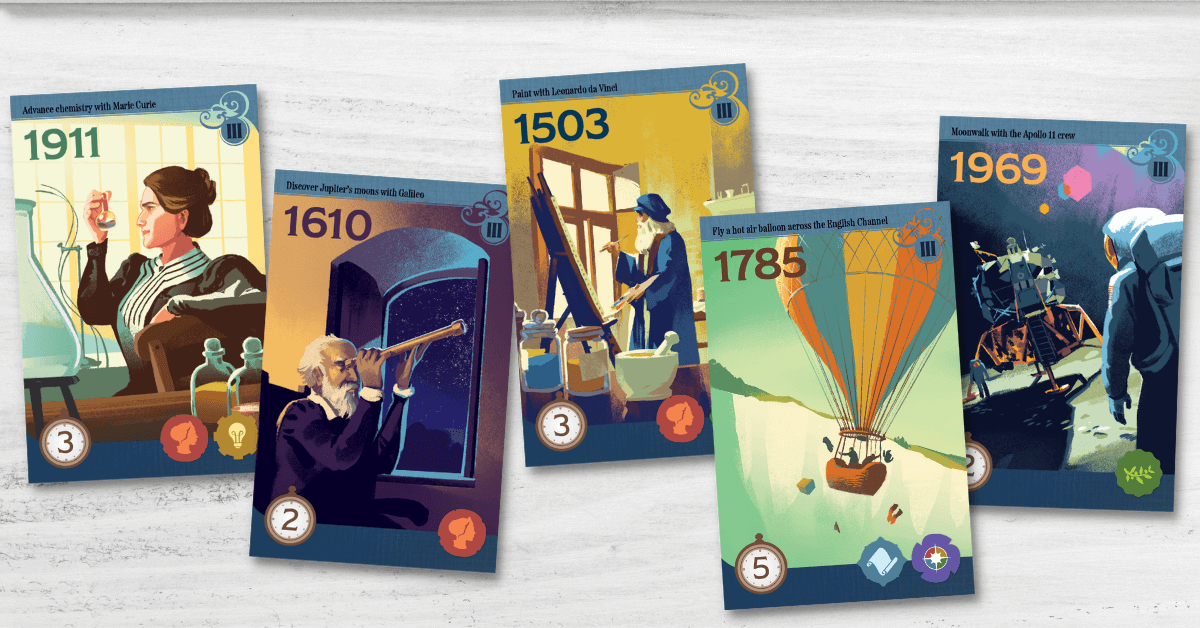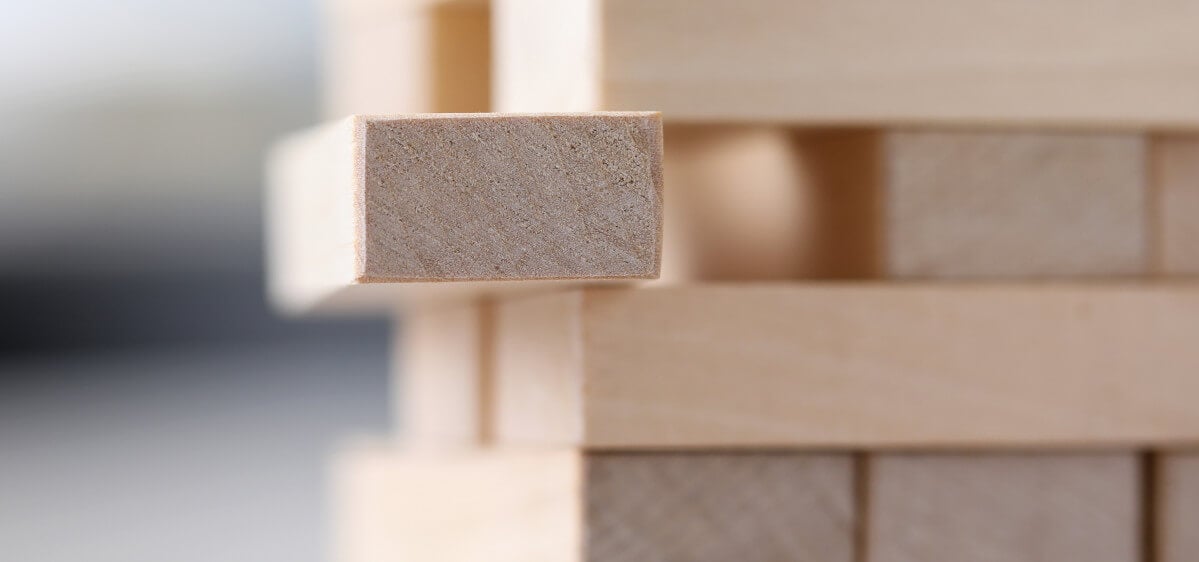You can’t make good board games without play testing.
Play testing is one of the most important steps in making a new board game. Because there’s enormous diversity in the ways different people experience games, game designers need to see through the eyes of others to make good games, and play testing is how we do it..
This doesn’t just mean testing with gamers or board game enthusiasts either. some of our best insights have come from those who don’t consider themselves gamers or hobbyists at all. They’re just regular people who enjoy playing games now and then. These are the people who often have brilliant insight for us.
Here’s a closer look at how we approach play testing. If you want to be a volunteer play tester, you can get more info or sign up right here.
It starts with science.
Before working in board games, I was a neurobiologist. I approach nearly everything I do with a scientist’s mindset, including my job overseeing game development here at Underdog.
To run a successful experiment, a scientist needs two things (among others):
- A “control”, which is a second version of the same experiment where the variable you’re interested in is different, but everything else is the same. Without a control, you can’t be sure the variable truly affects the experimental results.
- A testing atmosphere that is as close to real life as possible.
Both are important to our approach, starting with creating a control. Early on when we do tests, we don’t just play one game. We have play testers play two different games (usually related), but designed in different ways and by different designers. This has been a revelation in the way we look at creating games.
When you have play testers play one game, they’ll mostly respond that it’s pretty good. Yet, they can’t quite put into words the why, how, etc. But when they play two games back to back, they immediately have different experiences. It’s so much easier for them to talk about what they liked and didn’t like about each one.
We learn so much from our play testers in taking this approach. We know that our prototypes are always improving and getting better over time, and we plan to keep practicing this strategy as we work on future games.
We test at all phases of game development.
Typically, there are two main phases of play testing. In the first phase (the early phase), we’re being really experimental and trying out different concepts and ideas. During this time, we use a system called tabletop simulator that creates a virtual environment for playing the game.
These virtual tests allow us to test and play with people from all over the world. We can do a split test with play testers, showing and sharing multiple concepts in a short amount of time. This allows us to react quickly and easily make adjustments for more testing. I love this phase because anything can happen during it. What you think you know about game play or a specific mechanic might not work at all. Plus, you’ll have so many ideas and things you want to try as you learn live from play testers. This phase can go on for weeks or even months as a specific game takes shape.
Eventually as a game develops and becomes a more final version, we transfer over to the next stage of play testing where we create physical prototypes of the game. We know there are differences in the way people experience a game digitally vs. playing in person. This phase allows us to create that real-life testing environment.
During this time, we send a test game to play testers who are often family or friends. These play testers must learn the game from the rules, just like they would on their own. Teaching a game for the first time can be a tricky proposition, and it’s essential we replicate a real-life experience.
We continue to make both big and small changes during this phase. Often, we’re fine turning and making small changes at this point, but we have overhauled games before at this phase. Play testers give us an incredible opportunity to see our game with a fresh set of eyes. It helps us improve and ultimately make a better game for use as the consumer, which is what matters most.
For me, games do not exist until people are experiencing them. It’s like music—you can have a sheet of music, but there’s no music until someone starts playing the notes. Only through other people do games become real to me.
And then we have a game.
One of the hardest parts of making a new game is to finally let it go and say it’s ready for production. More than 4,000 board games are published each year, but a very small majority of these account for most of the sales.
If you don’t put your best foot forward, your chances of having success are very slim. For that reason, we don’t put out a lot of games each year at Underdog. (We’re also an independent company with a small staff.) Instead, we spend a lot of time trying to make the best games that we can.
Our goal is to be in the top 1%, so we spend hours upon hours developing our games and play testing them with people like you. As a company, one of our biggest goals is to introduce new people into the world of board games and get them coming back again and again.
To me, games are like the Velveteen rabbit. They’re not really real unless they’re played a lot. If you try a game that is challenging or consuming, you might not ever play it again. Worse, you might have trouble getting other people to play it with you.
As a designer, I cannot know how good a game is by myself. It can only be better through the eyes of other people. This is why play testing is so important. I need other people in order to do my job well, ultimately making great games that can be enjoyed for years to come.
If you’ve helped us play test before—thank you. We really appreciate it. And if you’d like to join our group of volunteer play testers, please learn more here. Keep in mind that we do ask for some demographic information on the form. This just helps us create better play testing groups that come from all experiences and walks of life.
We’re working on some great games right now on subjects like space, history, and the national parks. I hope to see you on a play test soon.





